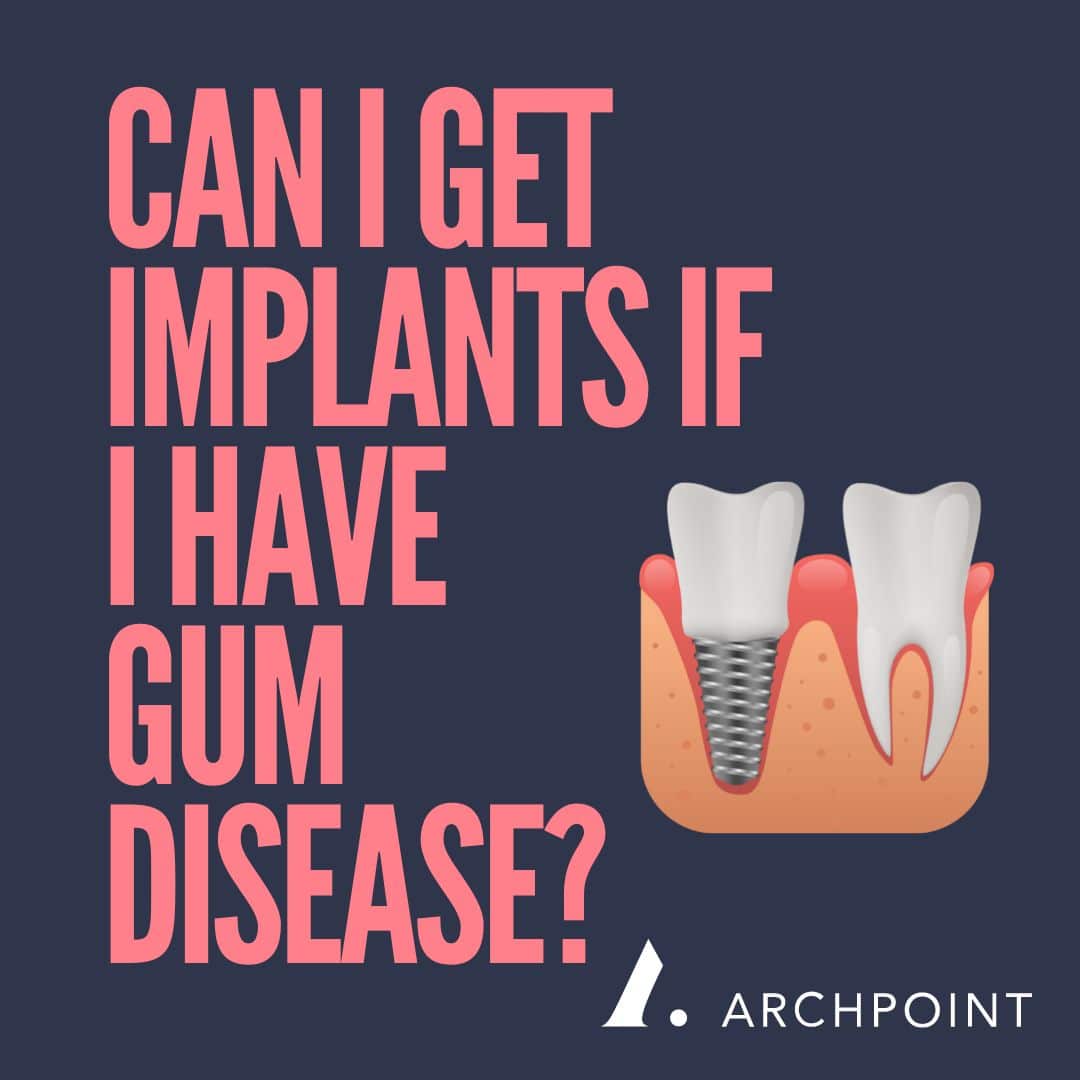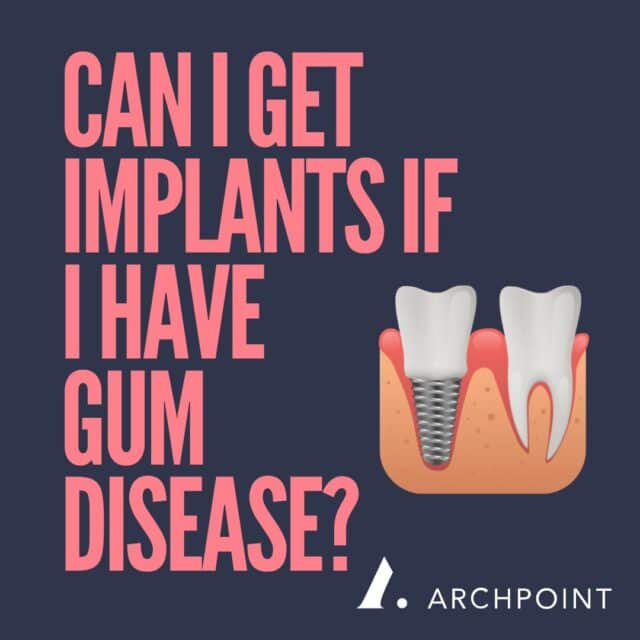
Periodontal disease—also known as “gum disease”—is the leading cause of tooth loss. But it also affects dental implants.
While dental implants are a popular and effective solution for people who have missing or damaged teeth, they’re not right for everyone. If you have gum disease, you may wonder if you’re a candidate for this permanent tooth replacement option. The good news is that gum disease doesn’t automatically rule you out as a candidate for dental implants. However, it’s important to consider a few key factors before making a decision.
Why is Periodontal Disease Bad for Dental Implants?
Gum disease is a threat to dental implants because it can lead to inflammation and infection of the gums. When the gums are infected, they can pull away from the teeth, exposing the implant posts. The underlying bone also becomes compromised. This can lead to a condition known as peri-implantitis, which is similar to periodontitis (gum disease). Ultimately, peri-implantitis can cause implant failure and even the need for the removal of the implants altogether.
Active gum disease can make it difficult to clean the implant posts and surrounding gums properly, leading to a buildup of additional plaque and bacteria. This can cause further infection and inflammation and can make it more difficult to treat gum disease and keep it under control. Good oral hygiene techniques are key, so it’s important to incorporate them before your dental implant treatment.
It’s important to address gum disease before undergoing any dental implant procedure. The good news is that if you do have gum disease, it’s possible to get it under control so that you can enjoy the benefits of dental implants. But the gum needs to be healthy leading up to your implant treatment; we can’t place the implants if there is still an active periodontal infection.
If There is Enough Healthy Bone to Support Your Implants
Having enough healthy bone to support your implants is a must. If gum disease has caused significant bone loss, it may not be possible to place implants without additional procedures, such as bone grafting or sinus lift surgery.
The longer periodontal or gum disease goes unaddressed, the more bone loss there usually is. Bone loss can be difficult to see when you smile in the mirror, but it’s evident on your dental X-rays and as your dentist or hygienist measure around each tooth. Without healthy bone support, there’s no foundation to support the implants. And periodontal disease is the leading cause of bone loss around teeth.
Even if you lost teeth to gum disease in the past, the longer you go with missing teeth, the more bone loss there usually is. You see, bone naturally resorbs (shrinks) around extracted or missing teeth. The good news is that if you place an implant in that space quickly, it can stimulate healthy bone to prevent loss of support in your jaw.
If Gum Disease is Under Control and Not Spreading
Next, it’s important to make sure that gum disease is under control and not spreading. If gum disease is active, it can cause further damage to your gums and teeth, making it more difficult to place implants. You’ll need to take steps to stabilize your gum infection before the implant can be installed. This might involve a series of deep cleanings and possibly even therapeutic dental extractions. Most importantly, you’ll want to adapt your home hygiene routine to address any inflammation or bleeding after your teeth have been cleaned.
If the Neighboring Teeth are Healthy
Even though it’s not where your implants are being installed, it’s important to consider the health of your neighboring teeth. If the teeth adjacent to your implant location are not healthy, it could predispose your implants to an infection or total failure.
That being said, it’s usually in the best interest of your smile (and your budget) to preserve or restore the healthy teeth you still have. Treatments such as bone grafting, gum grafting, fillings, or crowns may be needed to stabilize your oral health leading up to implant treatment.
Know When to Work With a Specialist
If you’re considering dental implants and already have a history of gum disease, it’s a good idea to work with a specialist. A specialist will have the training and expertise to evaluate your unique situation and determine if dental implants are a viable solution for you. Especially experts like oral surgeons, periodontists, or prosthodontists. Because of their added insight and background, these specialists have likely treated patients with cases similar to yours.
How to Treat Gum Disease
If you have gum disease, it’s important to treat it before undergoing any major dental procedure, such as dental implants. Treating gum disease may involve deep cleanings, prescription mouth rinse, locally placed antibiotics, or more extensive procedures, depending on the severity of your condition.
Can Gum Disease Damage Dental Implants?
Yes. Gum disease can prevent the bone from integrating around your implant properly. In fact, the leading cause of implant failure is peri-implantitis, which is the implant form of gum disease. That’s why it’s important to make sure that periodontal disease is under control before undergoing treatment.
If you’re not sure whether or not you still have gum disease, our implant specialists will thoroughly screen your gum and bone health prior to recommending any type of implant prosthesis.
Reserve an Implant Consultation to Find Out if You Qualify
If you have gum disease and are considering dental implants, it’s important to work with a specialist. They can determine if you’re a candidate for this treatment and help you prepare your smile if you aren’t.
The team at ARCHPOINT Implant Dentistry is a specialist clinic with on-staff implant experts at both our Dallas and Fort Worth locations. Our team is happy to see you at a no-obligation consultation to determine if dental implants are a viable solution for your smile.
Reserve your consultation today to find out if you qualify for dental implants.








